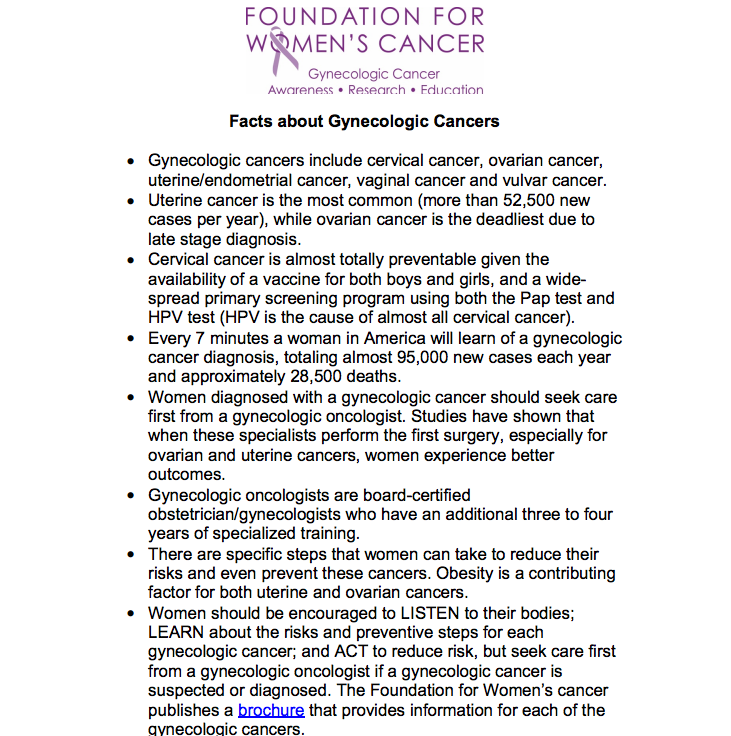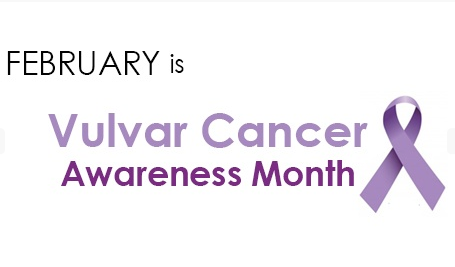 The doctors of the band N.E.D. (No Evidence of Disease) are turning up the volume on the healing power of music by reaching out to women with gynecologic cancers and raising awareness of these lesser-known diseases. The Emmy Award-winning, self-titled documentary, which follows the six gynecologic oncology surgeons who span the country and the women they treat, aims to educate an even bigger audience. The film was shown in more than 40 cities in the U.S. on Feb. 4 in honor of World Cancer Day and February’s National Cancer Prevention Month. Readers will also have the opportunity to view the film online, but more on that later.
The doctors of the band N.E.D. (No Evidence of Disease) are turning up the volume on the healing power of music by reaching out to women with gynecologic cancers and raising awareness of these lesser-known diseases. The Emmy Award-winning, self-titled documentary, which follows the six gynecologic oncology surgeons who span the country and the women they treat, aims to educate an even bigger audience. The film was shown in more than 40 cities in the U.S. on Feb. 4 in honor of World Cancer Day and February’s National Cancer Prevention Month. Readers will also have the opportunity to view the film online, but more on that later.
“There is this group of cancers that’s been ignored. There’s been a wall of silence around it,” John Soper, M.D., of the University of North Carolina at Chapel Hill, said in the documentary. The slide guitarist and mandolin player for the band N.E.D. added, “And hopefully we can bring some noise to that so that we’re heard, and so that our patients are heard.”
There are five main “below the belt” cancers for women: cervical, ovarian, uterine (endometrial), vulvar and vaginal. American Cancer Society estimates that 98,280 women will be diagnosed with gynecologic (GYN) cancers in 2015 (up from 94,990 in 2014), and 30,440 will be expected to die from these diseases (up from 28,790 last year). There is greater awareness of cervical cancer, and the fact that almost all cervical cancers are caused by HPV. The CDC states that HPV (the human papilloma virus) is so common that nearly all men and women who are sexually active will get it in their lives, though most cases of HPV go away on their own and are not the types that eventually cause reproductive cancers. Routine Pap smear screenings can detect HPV and cervical cancer. However, there are no standard screening tests for the most common GYN cancers—uterine and ovarian. An estimated 52,630 women were diagnosed with uterine cancer last year alone.
“We don’t have the diagnostic tests that we need to have for some of these women’s cancers,” Gretchen Purser, chair of the National Race to End Women’s Cancer, said. “And I want everyone to understand that when you go to the doctor, you’re not being tested for everything. You may think you are, but you’re not. And that’s something that every woman needs to know and take personal responsibility in and not to ignore her body.”
Why is there such need to draw attention to GYN cancers? For one, they are a leading cause of death for young Hispanic and African-Americans. Yet awareness of these types of cancer is still so low, and it’s considered taboo to talk about them in public. And while the national publicly supports breast cancer, both vocally and financially, less than 1 percent of what goes into breast cancer research is given to gynecologic cancer research.
 In the documentary, Will Winter III, M.D., compass oncologist and lead guitarist of the band, recounts a talk he gave to a room full of gynecologists about cancer awareness. While all the doctors had participated in or donated to organizations dedicated to breast cancer, only three had ever heard of the Gynecologic Cancer Foundation and none had supported it. The Foundation for Women’s Cancer, as it is now known, provides public awareness programs to aid prevention, early diagnosis and proper treatment of gynecological cancers, as well as supports research and medical training. It is the only charity in the U.S. that covers all GYN cancers.
In the documentary, Will Winter III, M.D., compass oncologist and lead guitarist of the band, recounts a talk he gave to a room full of gynecologists about cancer awareness. While all the doctors had participated in or donated to organizations dedicated to breast cancer, only three had ever heard of the Gynecologic Cancer Foundation and none had supported it. The Foundation for Women’s Cancer, as it is now known, provides public awareness programs to aid prevention, early diagnosis and proper treatment of gynecological cancers, as well as supports research and medical training. It is the only charity in the U.S. that covers all GYN cancers.
“There are only 750 to 800 or so gynecologic oncologists in the whole country,” said William “Rusty” Robinson, MD (vocals, bass guitar & harmonica for N.E.D.), of Tulane University School of Medicine in New Orleans, La. “Because of that [GYN cancers] are not universally recognized in the healthcare system. The physicians may not even really be aware that they have the option of sending a patient to see a specialist in that particular field.”
One of his patients, Bobbie Kelley, matter-of-factly shares her experience of suffering from the unknown in the documentary. “It went from 2002 to 2012 before someone really knew what was going on,” Kelley said about her rare vulvar tumor. “So I’ve been in pain for 10 years.”
A common cry for women with GYN cancer is, “I didn’t know.” Not enough is know about the signs and symptoms of GYN cancers, nor what to expect in terms of severity of the disease and outlook.
 While reading an N.E.D. handout on GYN cancer, a patient with stage 4 ovarian cancer, grew tearful in the documentary. “I wish I knew about these symptoms a year ago,” Cathy McCue said. “I really do wish I knew this and had this information. If I knew this, I might not be sick. So I really hope that they could come up with some form of screening or something that can help women because we don’t know.”
While reading an N.E.D. handout on GYN cancer, a patient with stage 4 ovarian cancer, grew tearful in the documentary. “I wish I knew about these symptoms a year ago,” Cathy McCue said. “I really do wish I knew this and had this information. If I knew this, I might not be sick. So I really hope that they could come up with some form of screening or something that can help women because we don’t know.”
Director Andrea Kalin hopes to elevate the public awareness of GYN cancer on par with breast cancer with No Evidence of Disease. According to Kalin and her filmmaking team, the goal of the documentary is to trigger major changes in cancer funding as well. The film makes clear that GYN cancer affects women of all ages and ethnicities and has a great impact on the doctors who treat them, as well as their families and friends.
“It’s not just a woman’s problem,” said Winter. “The whole idea is that no one’s life is untouched by women’s cancer.”
Complete remission, or “no evidence of disease,” is the magic phrase that each woman with cancer prays to hear her oncologist say. With greater awareness and funding to support research and treatment, more women with GYN cancer can reach the point of N.E.D.
To learn What Every Women Should Know about GYN cancer, watch a 16-minute multimedia guide to the signs and symptoms of all major GYN cancers here.
The film will be available for viewing on the website nedthemovie.com via Vimeo. View the trailer below:
[vimeo 107275052 w=500 h=281]
No Evidence of Disease (Trailer) from Spark Media on Vimeo.
To find out more about the band N.E.D, visit their website www.nedtheband.com

Leave a Reply